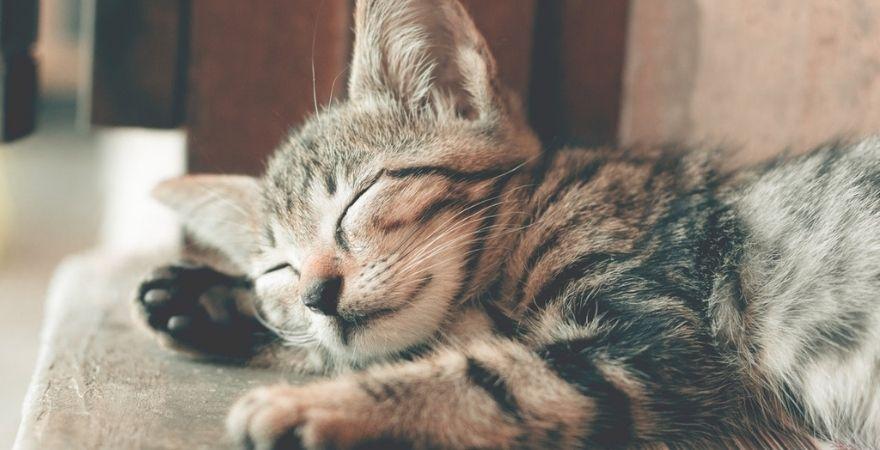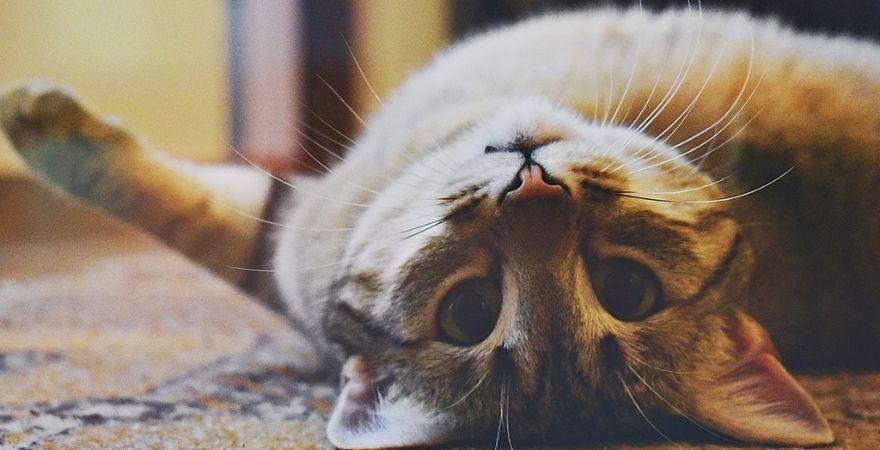a moment in time, a lifetime of love
Where’d the time go?! Just the other day you brought home a nameless little fuzz ball snuggled tight against you, both of you unsure about what’s going on (or what you’re doing — the joys of being a brand new pet parent!), but excited about the possibility of spending a lot of time together.
Then boom, you’re 10 years in. The cuddles, messes, and late night sessions all coalesced into a loving and (somewhat) more peaceful relationship. It’s a blessing to have as long and happy a relationship as you do with kitty, and their later years are part of the life journey that also comes with its own challenges.
One common problem you’ll need to be on the lookout for is hyperthyroidism.
Just like the name suggests, hyperthyroidism is a disease caused by the thyroid producing too many hormones, namely T3 and T4 — this over-production comes from an enlarged thyroid gland in the cat’s neck. The increase in gland size is caused by a non-cancerous tumour called an adenoma. In rare cases, some hyperthyroid diseases are caused by cancer-causing tumours called the thyroid adenocarcinomas.
No one knows the root cause of hyperthyroidism, but different factors can include not enough or too much of certain compounds in kitty’s diet, or thyroid disrupting chemicals in their food or environment. It’s not the most helpful explanation (if we had the answers we’d totally share them right here with you!), but it is a start knowing that hyperthyroidism seems to be something that comes with the territory of getting older.
Also important? Hyperthyroidism causes other problems in the body, because thyroid hormones affect nearly all of the organs in the body.

Photo by Tambako the Jaguar via Flickr.
Signs of Hyperthyroidism
Telltale signs of anything serious going on won’t show up right away, but does get more obvious as it gets worse. Clinically, the most common signs of hyperthyroidism are weight loss, a spike in appetite as well as thirst and going to the bathroom. Hyperthyroidism might also cause vomiting, diarrhea, and hyperactivity. If kitty’s coat also starts looking matted with a greasy feel, that’s definitely a sign to give your vet a call.
diagnosis
If your vet suspects kitty has hyperthyroidism, they’ll do a physical exam and feel kitty’s neck area for an enlarged thyroid gland. Kitty’s heart rate and blood pressure might get a once-over as well (#seniorlife). If your vet has a good hunch that it is hyperthyroidism, a blood test is in order and an analysis of thyroid hormone levels. Most cats with hyperthyroidism have higher levels of the hormone T4 in the bloodstream, but a small percentage can still have thyroid issues with a normal T4 level. Your vet will recommend more tests as needed, and will double check kitty’s heart and kidneys, since hyperthyroidism causes a host of other health problems in major organs.

Photo by Anne Worner via Flickr.
what now?
Hyperthyroidism sounds scary, and should be taken seriously, but it’s not a death sentence. With proper treatments at home - and sometimes at the vet, you and your old fuzz ball will continue having a long and loving relationship, with the odd late night session here and there.
If you can’t wait that long, you can check out the Scruffy Paws Thyroid Soothe Drops, made with all natural ingredients that come as a tasteless dropper, perfect for getting kitty on track to get better.

Photo by Tambako the Jaguar via Flickr.

Stephanie Pollard
Writer. Pet Enthusiast. Ambivert.




6 comments
My cat has been checked for thyroid disease and has been negative both times. He keeps getting constipated (have had to have him put under and cleaned out, also enemas twice. Drinks lots of water, urinated alot, voracious appetite until he starts to get impacted. Is on lactulose and cisapride. Beginning to urinate and defecate out of litter box when he had to go badly. Any suggestions for what is wrong or how to treat.
I believe my one cat had that, Tinkerbell, Raggdoll, kidney, blood pressure high. My vet put her on medicine and she live 20 years. Now I have rescue two cats and would be interested it that medicine. They are three years old now.
My cat Smokey had hyperthyroidism. I medicated him for about 4 yrs before he began to show signs of discomfort. I had to put him to sleep a year ago this month. He was 16 yrs. old, gray with white paws & a triangular white “bib” just under his chin. He was very smart & a great “mouser”. He wandered into our back yard one day as a stray & decided to stay. We loved him dearly & miss him very much.